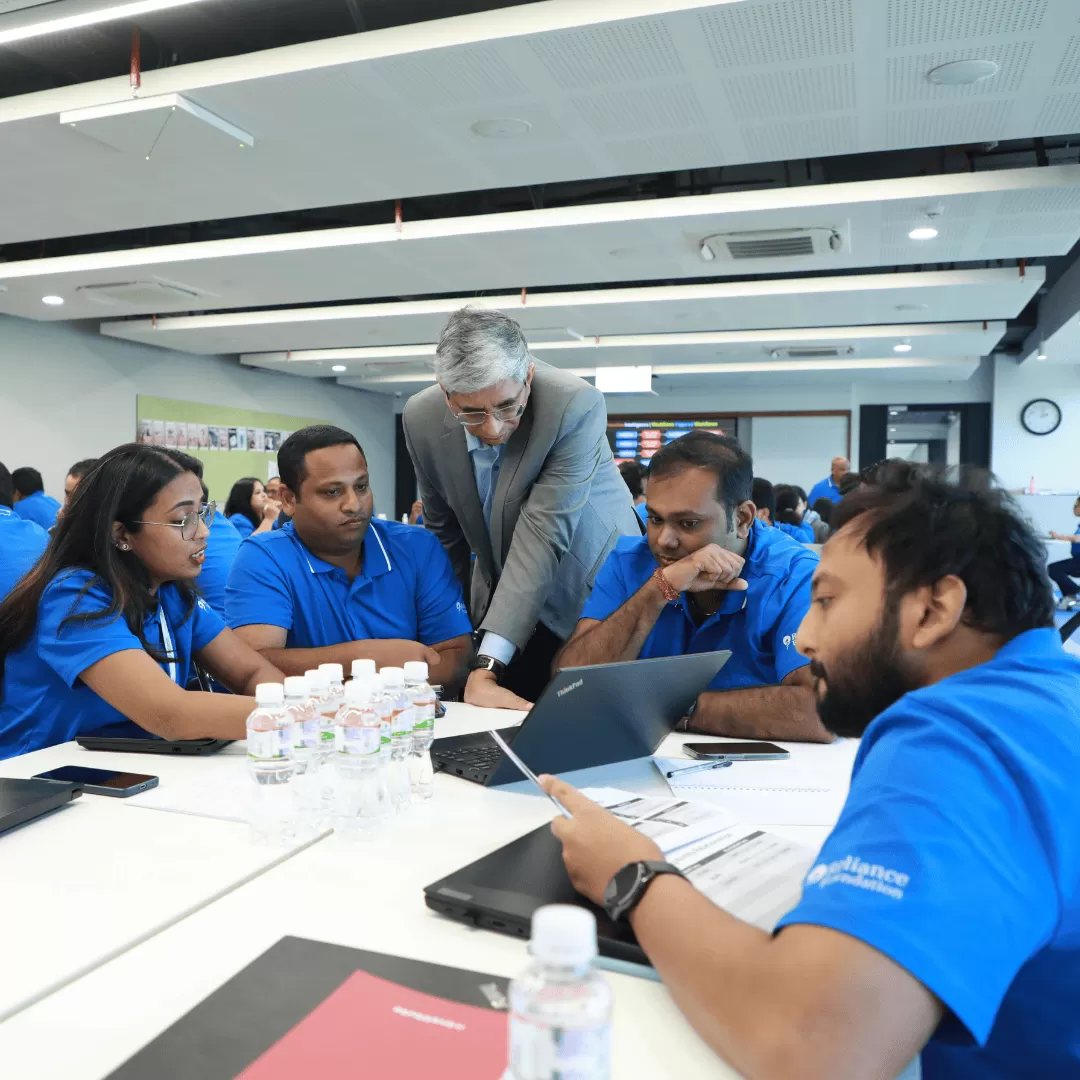
“Artificial Intelligence won’t replace humans, but humans who use AI will replace those who don’t.” This statement set the tone for an engaging and thought-provoking workshop on ‘AI in the Social Sector’, organised by Jio Institute for 64 participants from Reliance Foundation. Bringing together thought leaders, researchers, and practitioners, the event delved into the transformative role of artificial intelligence in social development. The discussions spanned multiple domains, emphasising AI’s potential in agriculture, healthcare, disaster management, education, and women’s empowerment.
The workshop highlighted AI’s ability to enhance decision-making and optimise resources across various social sectors. Experts elaborated on how AI can be leveraged in agriculture, particularly in irrigation water management, crop health detection, and precision farming. With the integration of AI-driven sensors and satellite imagery, farmers can optimise sowing and harvesting cycles, improving yield and sustainability.
A major focus of the workshop was the role of AI in women’s empowerment and digital inclusion. AI-powered platforms can facilitate post-harvest market linkages for women farmers, enabling them to access better prices and reduce dependency on intermediaries. Additionally, AI-driven educational tools can help bridge the digital divide by providing tailored learning experiences for rural women, fostering financial literacy and entrepreneurship.
Disaster management emerged as another critical area where AI can drive significant impact. AI-enabled predictive models can enhance disaster preparedness by analysing weather patterns and historical data to forecast natural calamities. Real-time AI-powered monitoring systems can help protect livestock and rural livelihoods by enabling early interventions during floods, droughts, or other emergencies.
Healthcare applications of AI were also extensively discussed. AI-powered diagnostic tools, wearable health monitors, and telemedicine platforms are already transforming access to medical care in remote areas. The workshop explored AI’s role in drug discovery, disease prevention, and pandemic response, paving the way for more equitable healthcare solutions.
An important takeaway from the discussions was the need for interoperability and system integration. AI solutions must be seamlessly embedded within existing social and governance frameworks for effective implementation. Participants emphasised the importance of building digital infrastructure, such as smart cities and AI-driven information services, to foster a more inclusive and efficient society.
Dr. Shailesh Kumar, Chief Data Scientist, Centre of Excellence in AI/ML cited several key takeaways from the workshop, emphasising the role of AI in automating decision-making, optimising workflows, and ensuring data-driven interventions. He highlighted the importance of proactive intelligence, where AI not only reacts to situations but also anticipates and prevents crises before they occur. His insights underscored the need for an AI ecosystem that integrates human expertise with machine intelligence to drive sustainable social impact.
As AI continues to evolve, its role in social development will expand, creating new opportunities and challenges. The workshop underscored the need for collaboration between policymakers, technologists, and social sector experts to harness AI responsibly and equitably. With continued innovation and ethical implementation, AI has the potential to drive sustainable development and improve the lives of millions worldwide.
